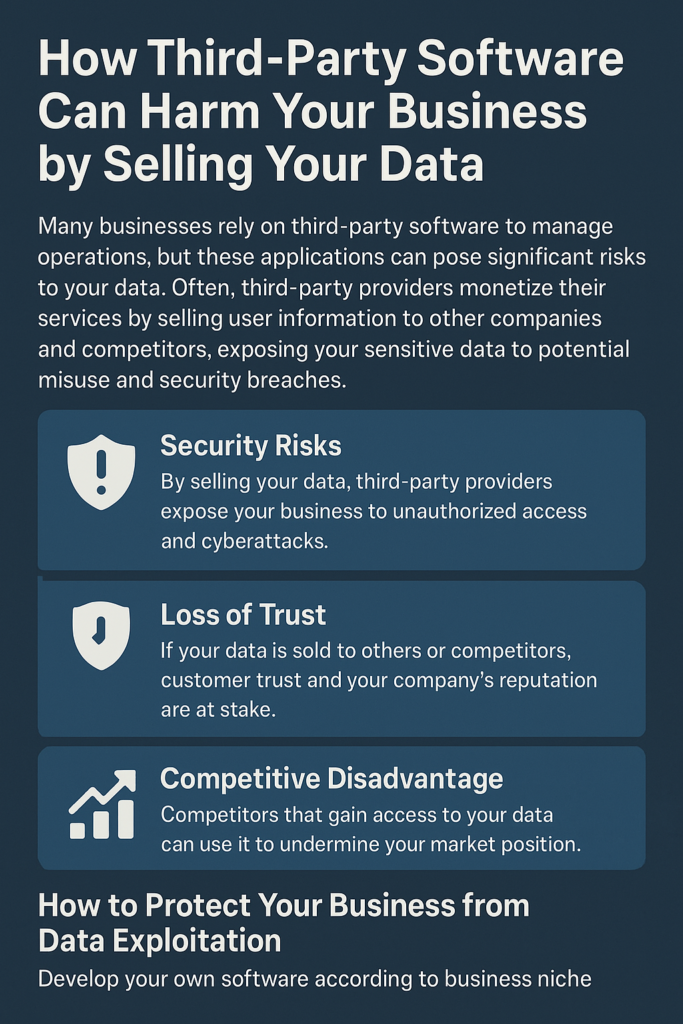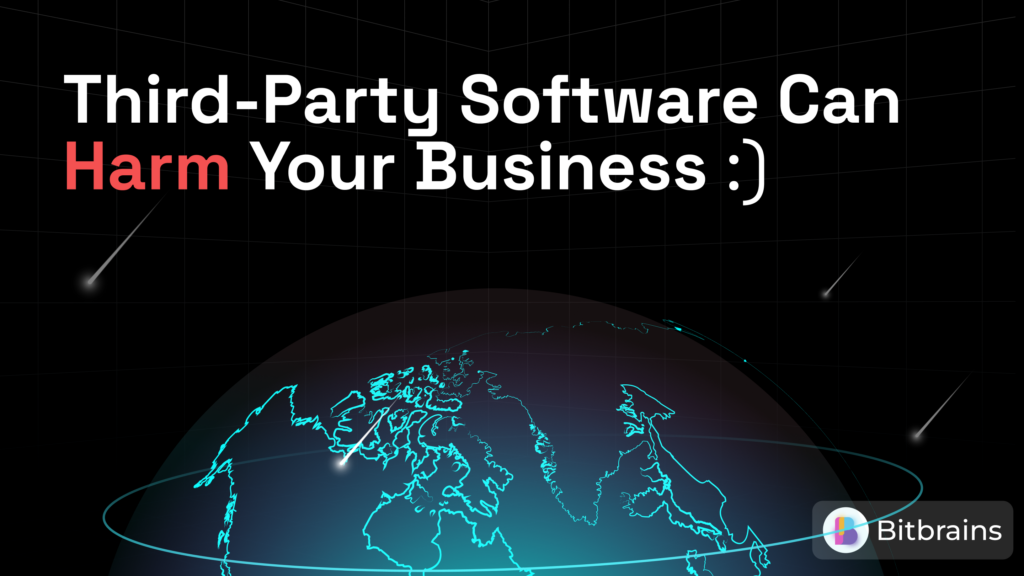In today’s digital world, businesses rely on third-party software for various functions such as customer relationship management (CRM), accounting, marketing automation, and more. While these tools help streamline operations, they also pose a significant risk to businesses by potentially selling or sharing user data with other companies, including competitors. This article explores the hidden dangers of third-party software and how it can harm your business.
The Hidden Risk of Data Exploitation
Many third-party software providers collect vast amounts of user data. While they claim to protect user privacy, some of these companies monetize the collected data by selling it to advertisers, data brokers, or even competitors. This raises serious concerns about data security and business confidentiality.
1. Data Monetization by Third Parties
Some software providers generate revenue by selling user data. This data may include customer information, business strategies, and operational details, which can be highly valuable to competitors. Data brokers purchase this information and resell it to interested parties, putting your business at a disadvantage.
2. Competitors Gaining Unfair Advantage
If your data falls into the hands of a competitor, they can analyze your business strategies, customer preferences, and marketing campaigns. This enables them to make data-driven decisions that can overshadow your market presence.
3. Privacy Violations and Legal Risks
Using third-party software that sells user data can lead to violations of data protection laws such as GDPR, CCPA, and other privacy regulations. If your business is found using a tool that mishandles customer data, you may face legal action, fines, and loss of customer trust.

How to Protect Your Business from Data Exploitation
1. Develop Your Own Software According to Business Niche
One of the most effective ways to eliminate third-party risks is to develop your own software tailored to your business needs. By creating an in-house solution, you maintain complete control over data security, privacy, and functionality. Custom-built software ensures that sensitive information remains protected and reduces dependency on external providers. We (Bitbrains) develop more than 9+ customized CRM/Software according to business niche, If you have query about roadmap your software you can freely contact us, we can solve it!
2. Research Software Providers Carefully
Before integrating third-party software, thoroughly research the company’s privacy policy, terms of service, and data handling practices. Look for companies that prioritize user privacy and transparency.
3. Read User Agreements and Privacy Policies
Many businesses accept software terms without reading them. Make sure to review privacy policies and check whether the software provider has a history of selling data to third parties.
4. Comply with Data Protection Regulations
Ensure that your business complies with data privacy laws like GDPR and CCPA. Choose software vendors that align with these regulations to avoid legal troubles.
Conclusion
While third-party software can enhance business operations, it also poses significant risks, particularly in terms of data security and privacy. Many providers exploit user data for financial gain, which can harm your business by exposing sensitive information to competitors. By taking proactive steps such as carefully choosing software vendors, limiting data access, and complying with privacy laws, you can safeguard your business from potential threats. Always prioritize security and transparency when integrating third-party solutions to maintain a competitive edge and protect your business’s confidential information.
